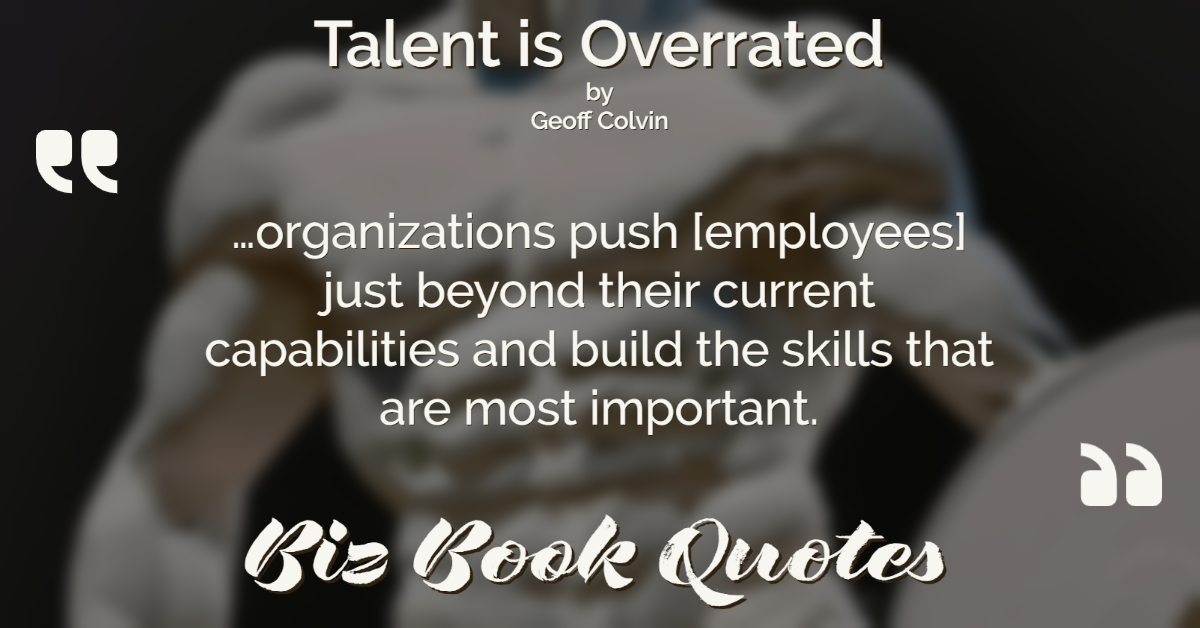 |
…organizations push [employees] just beyond their current capabilities and build the skills that are most important.
|
128 |
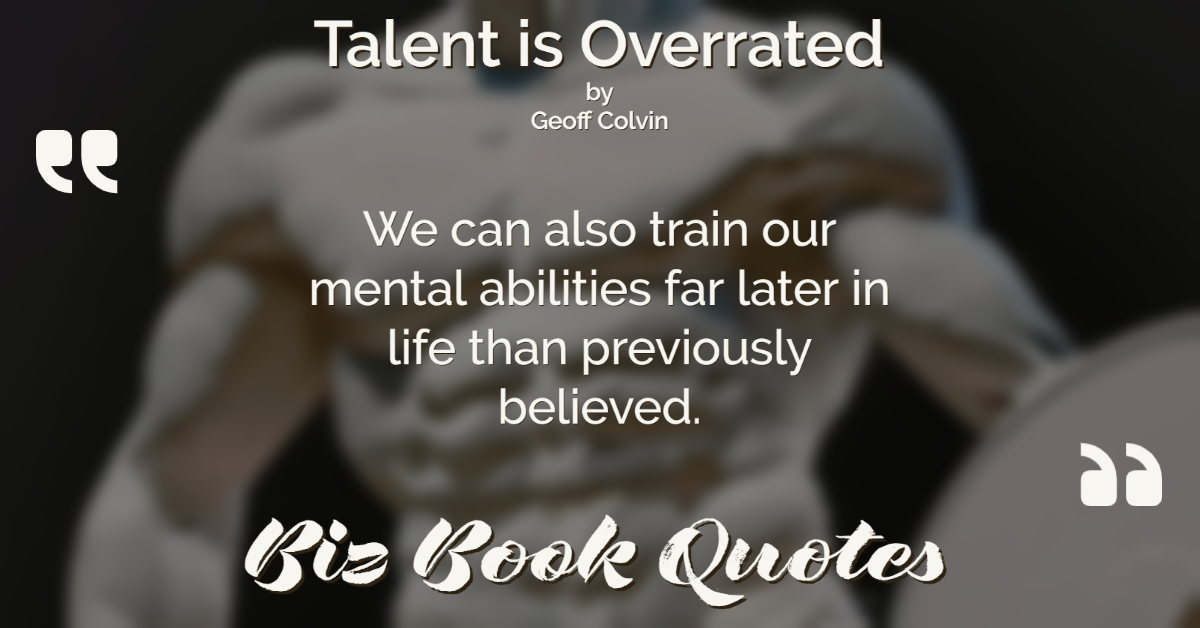 |
We can also train our mental abilities far later in life than previously believed.
|
183 |
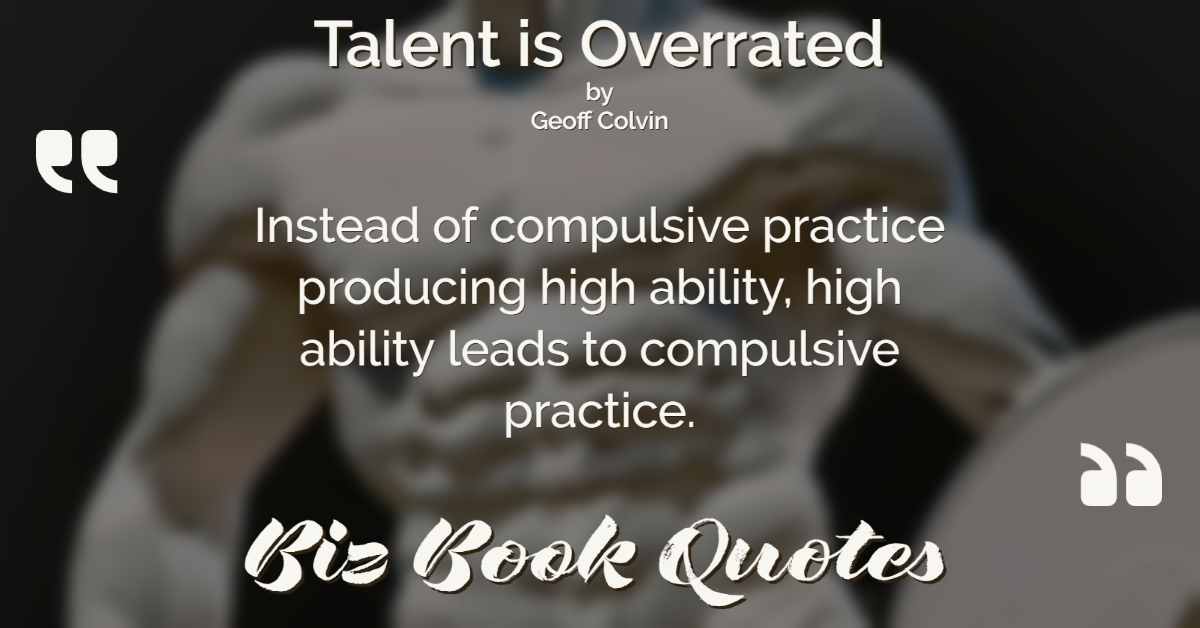 |
Instead of compulsive practice producing high ability, high ability leads to compulsive practice.
|
196 |
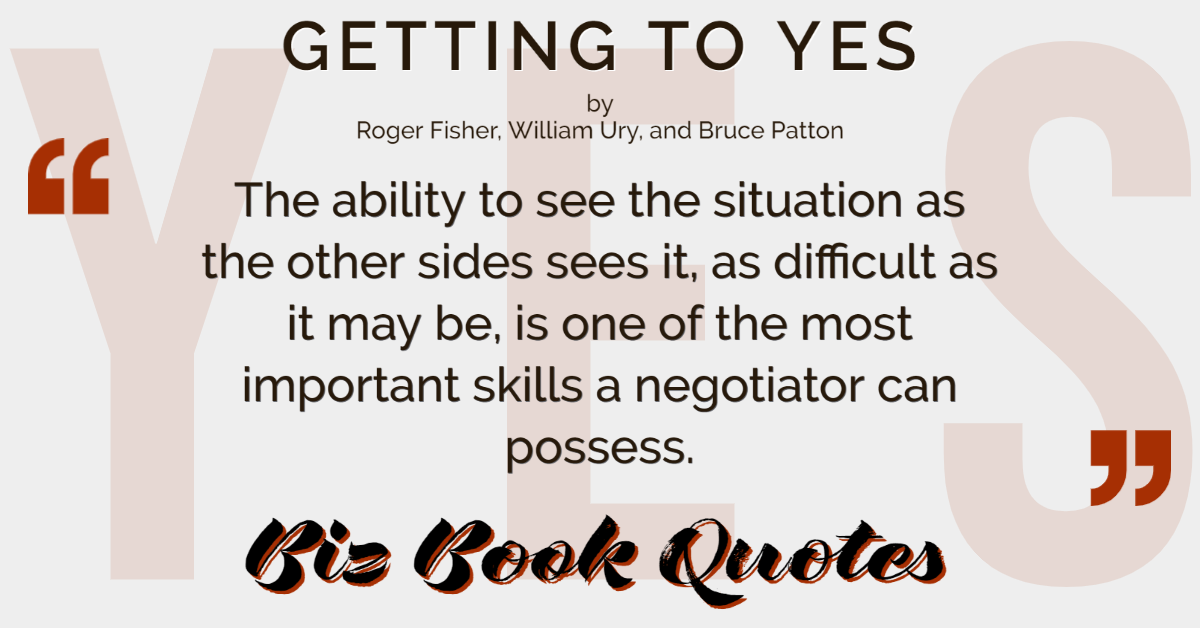 |
The ability to see the situation as the other sides sees it, as difficult as it may be, is one of the most important skills a negotiator can possess.
|
25 |
 |
…it’s arguable now that our ability to identify great people has deteriorated. We have created so much data that we’re drowning in it.
|
5 |
 |
We scrutinize people so exhaustively for signs of proven competence that we may be losing the ability to do anything else. All we see are past credentials.
|
5 |
 |
Some people regard [talent] as a God-given gift; others see talent as something built up via hard work and disciplined training. Either way, the ability to pick the right people isn’t out of reach for anyone.
|
8 |
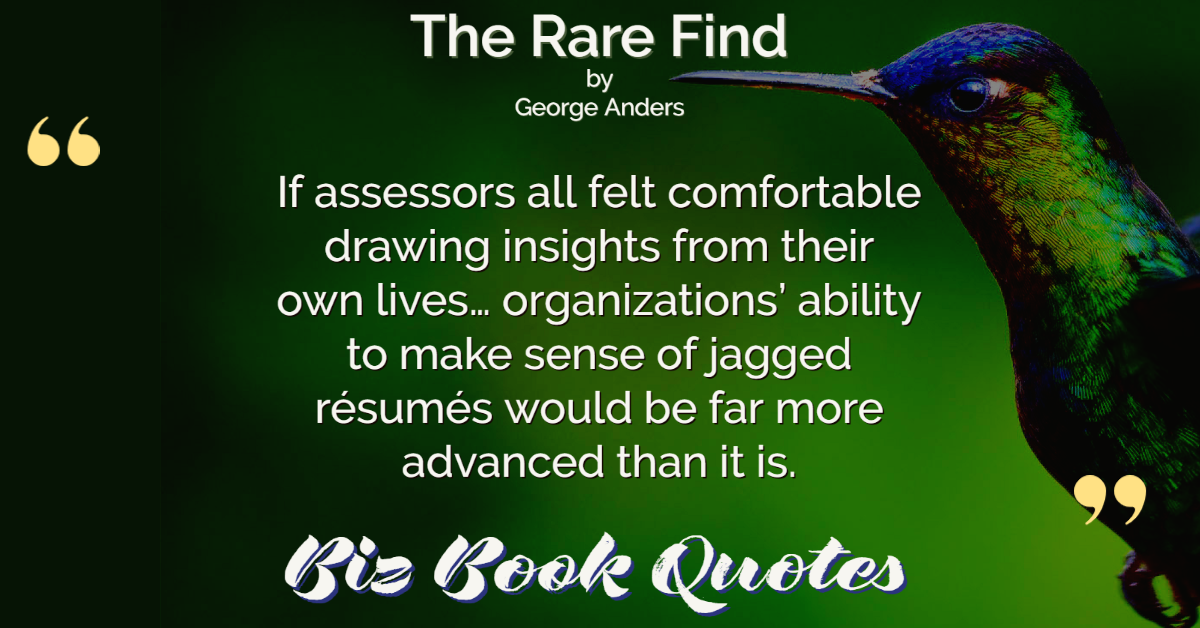 |
If assessors all felt comfortable drawing insights from their own lives… organizations’ ability to make sense of jagged résumés would be far more advanced than it is.
|
87 |
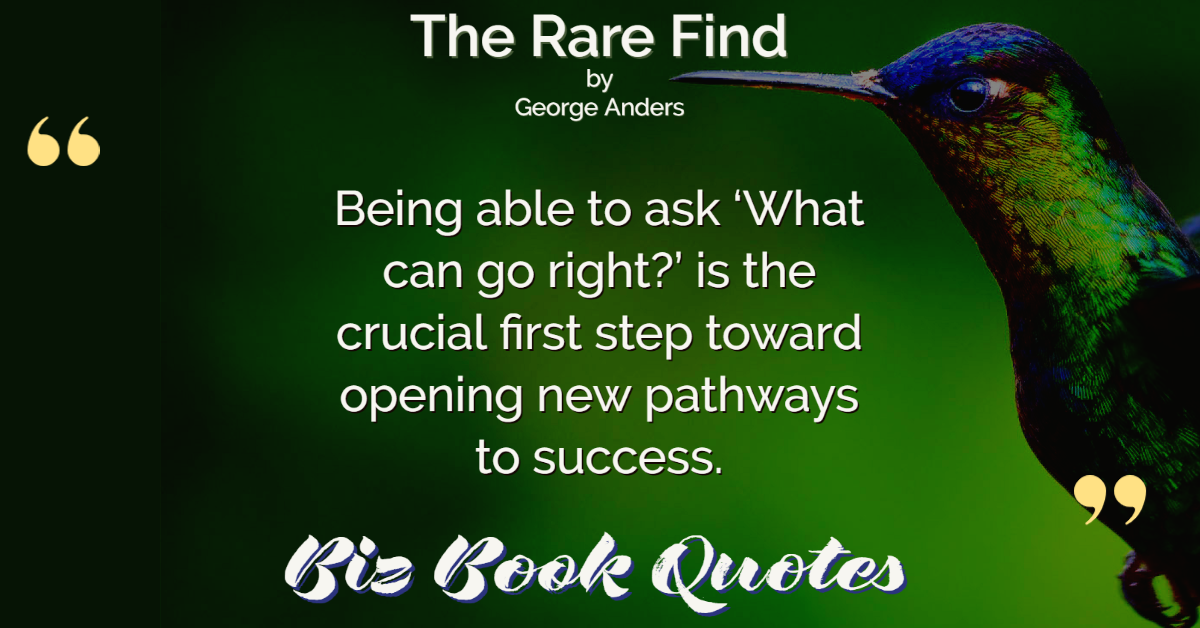 |
Being able to ask ‘What can go right?’ is the crucial first step toward opening new pathways to success.
|
170 |
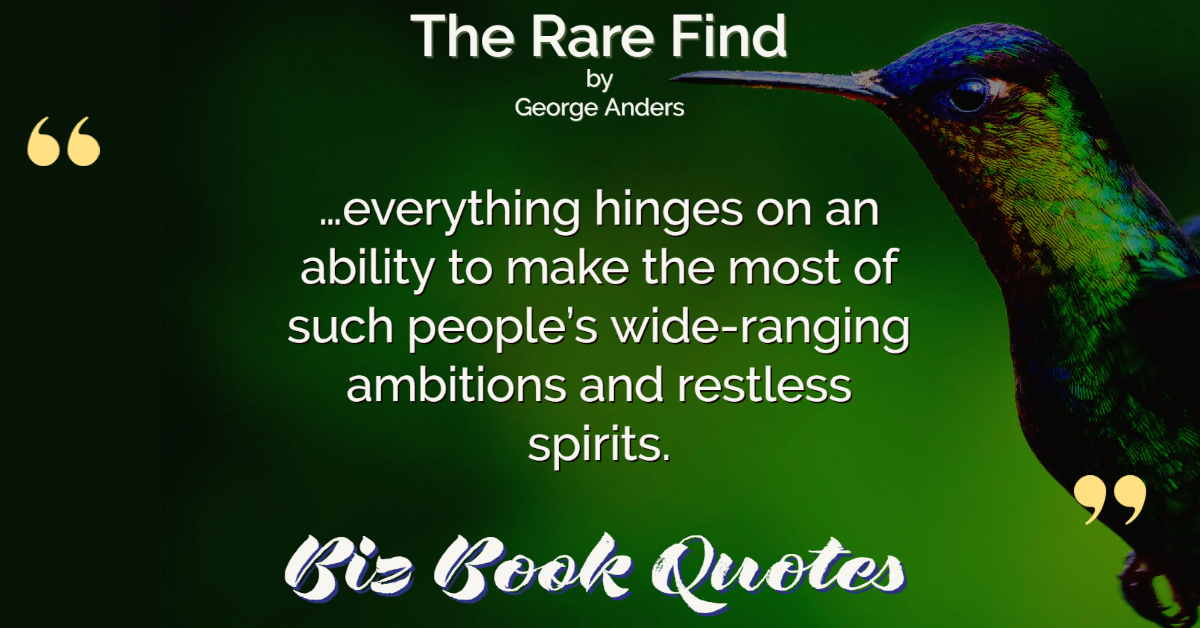 |
…everything hinges on an ability to make the most of such people’s wide-ranging ambitions and restless spirits.
|
185 |